Cross-strait reunification is not a precondition for China's national rejuvenation
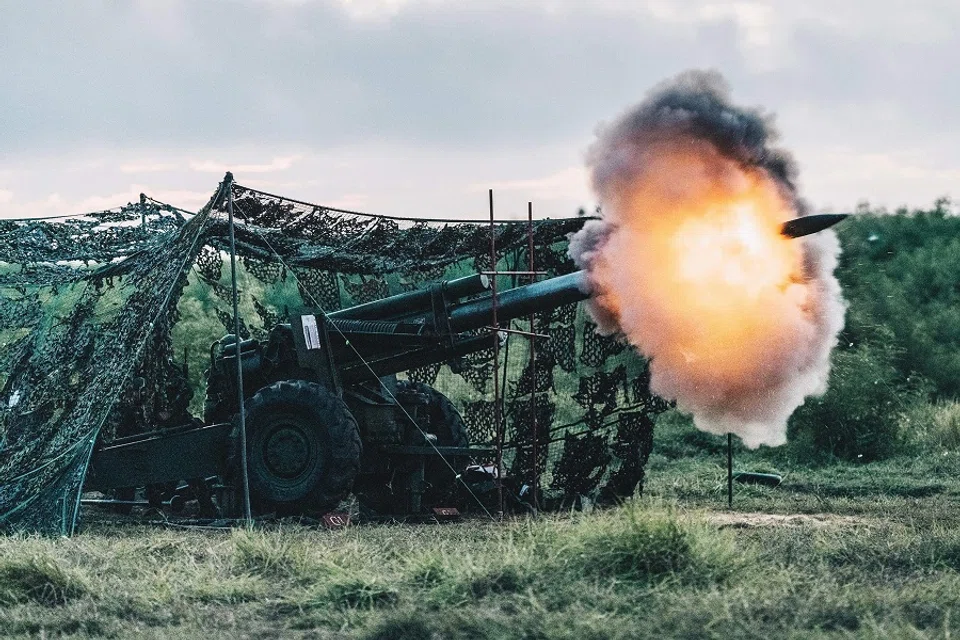
There is currently a dangerous obsession with a certain idea among the people of mainland China. It is that China, the Chinese nation and the Chinese dream can only count as risen, rejuvenated and fulfilled respectively if reunification across the Taiwan Strait is accomplished and territorial integrity thus complete.
This idea of unknown origin seems to be coming across as something all too plainly reasonable. It has not only taken over the mainstream of the mainland's public opinion, but also established itself as the new politically correct. Anyone who casts doubt on it risks being denounced as traitorous or unpatriotic, and many countries are led to firmly accept it as the truth. Under immense pressure from this obsession, the Chinese Communist Party (CCP) has begun pondering on a timetable for forcible reunification but is having a difficult time deciding.
As with all politically correct pseudo-propositions, if we were to keep asking questions about the actual reasons for maintaining the "sacred", unassailable facade, the whole edifice may collapse with a boom like a rain-weathered mud wall, or like an onion being peeled layer by layer, until all can see that there is simply nothing at the heart of it. The simple fact is this: even though cross-strait reunification has yet to be realised, China is already rising, and the great work that is the rejuvenation of the Chinese nation is well under way.
National rejuvenation and the Chinese dream
The rise of a great power, the rejuvenation of the Chinese nation, the Chinese dream - these keywords are ubiquitous all across mainland China's official media and social media. There are various attempts in academic circles to quantify such ideas and create metrics for tracking and comparisons.
For example, the Development Research Center of the State Council of China has developed a three-tiered testing and evaluation metric for how the country is doing, in which the index weights of the different components are as follows: 0.25 for economic development; 0.20 for social development; 0.15 for national human quality, technological innovation and resource environment respectively; 0.10 for international influence.
One might expect cross-strait reunification or territorial integrity to be reflected in the indexical component of international influence, and yet scholars have only chosen to incorporate indicative quantification for international competitiveness.
Reunification is not a prerequisite or necessary condition for national rejuvenation or the rise of China as a great power.
According to another metric, created by Tsinghua University's Institute for Contemporary China Studies, China has long surpassed the US in comprehensive national strength.
While the scientificity of these metrics is widely questioned, what remains unquestioned is that they all do not take into account cross-strait reunification. The reason is very simple. Reunification is not a prerequisite or necessary condition for national rejuvenation or the rise of China as a great power.
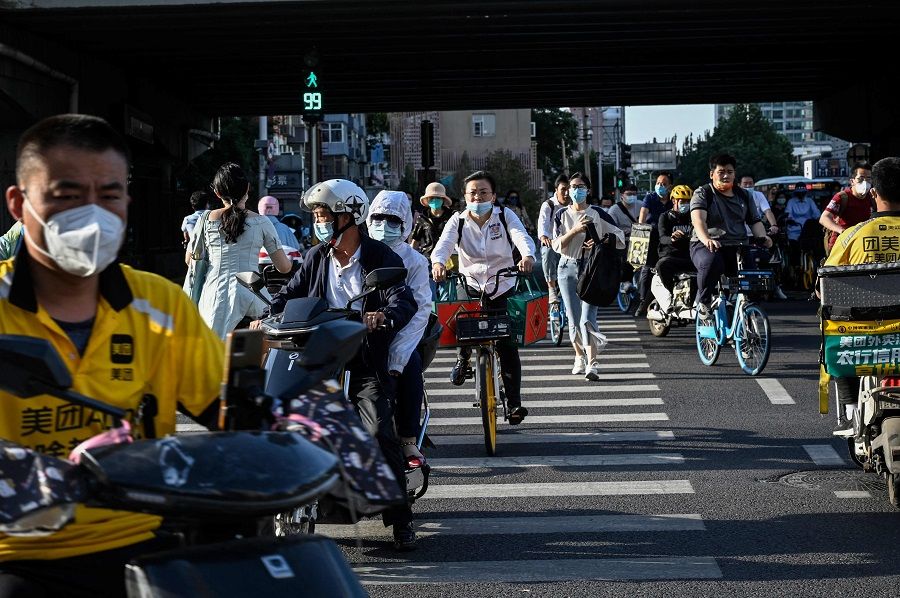
As far as defining narratives go, the Chinese dream is the preferred term. With the CCP's mission of serving the people and what Xi Jinping calls a "people-centred philosophy of development", this dream is closer to that of the common folk.
Soon after he took office, Xi Jinping had proclaimed: "Our people have an ardent love for life. They want to have better education, more stable jobs, more satisfying incomes, more reliable social security, better medical services and health care, improved housing conditions and a more beautiful environment. They hope that their children will grow up better, work better and live better lives."
This vision, which connects very well with the masses, was later summarised under the following catch phrase in CCP propaganda: "The wonderful life that the people yearn for is the goal we are fighting for."
Taiwan has been one of the conducive conditions and boosting factors for the rise of mainland China.
Taiwan's role: then and now
But what role does Taiwan play in this?
Back in the early days of China's economic reform and opening up, Deng Xiaoping pointed out that one unique opportunity available to his country was investment from Chinese beyond the mainland's borders, especially from Hong Kong, Macau and Taiwan. For this reason, two of the four earliest special economic zones (SEZs) set up were Taiwan-oriented.
One may say that Taiwan's businesses made great contributions to China's development. The labour-intensive industries in which the investments were concentrated changed the fate of countless poverty-stricken farmers, and fundamentally altered the economic structure of the mainland's mix of urban and rural areas, as well as China's place in the global geoeconomic gestalt.
The actualities of the last few decades show that Taiwan has been one of the conducive conditions and boosting factors for the rise of mainland China. Indeed, the miracle of the island's development is ultimately part of the Chinese nation's rejuvenation.
Playing the armed reunification card comes with many side effects, so to speak, and can undermine or even derail China's national rejuvenation.
Compared to the mainlanders who had been scrubbed by the Cultural Revolution, the Taiwanese people often feel a stronger bond with Chinese cultural traditions and are more authentic inheritors of Chinese culture. But then why do the Taiwanese people feel so little affinity with the current mainland regime? The reasons are complex. They have to do with the broader international climate and the Taiwanese microclimate, and are certainly inseparable from the CCP's policies and actions.
In any case, it is quite unwise to believe that armed reunification is the only way just because of this. Playing the armed reunification card comes with many side effects, so to speak, and can undermine or even derail China's national rejuvenation.
Managing domestic and global sentiments
Apart from damaging relations with other major powers, and making China the target of international opinion, the passionate reactions and collective fury with regard to Taiwan independence pose a great threat to domestic political stability and puts those in power on edge.
The massive flares of nationalist sentiment triggered by the Taiwan-related "taboo" are something quite rarely seen elsewhere in the world today. They compel the Chinese government to have to show some correspondingly intense reaction itself, so as to pacify the articulated anger of the populace.
Why would politicians in small, insignificant countries like Lithuania, the Czech Republic and Latvia rub the nose of the Chinese colossus? Their motive is to garner attention.
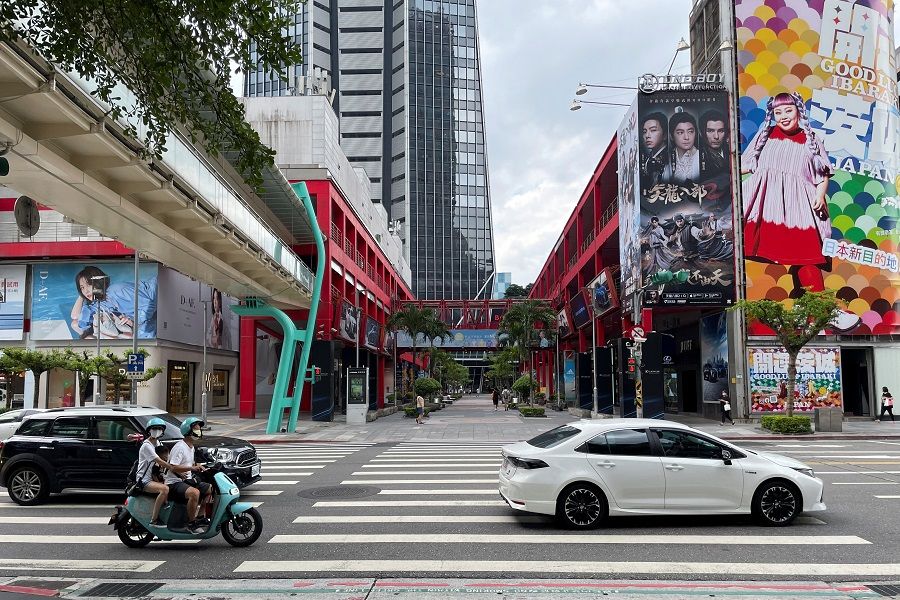
In addition, given the trend of growing diversity in today's world, to demand ad nauseam that the international community voices its support for the "one China" principle unanimously will seem increasingly at odds with the times, not to mention incur an ever-rising cost.
Precisely because the issue of independence for Taiwan always draws that kind of "politically correct" reaction without fail, words and actions that "challenge China's bottom line" will just keep coming. If the reaction is going to be frothing collective indignation every single time, China is bound to tire itself out, find no peace domestically, make the surrounding countries edgy, and inadvertently create opportunities for those with ulterior motives.
Why would politicians in small, insignificant countries like Lithuania, the Czech Republic and Latvia rub the nose of the Chinese colossus? Their motive is to garner attention. Getting under the skin of giants like China and Russia and enraging them costs almost nothing for them. In return, goading the dragon can earn them a place in the international arena. By playing the part of the fiery vanguard, they get to receive the admiration and praises of major Western powers.
The more China gets worked up, the more the provocateurs continue gleefully.
To have politically correct sensitivity towards the issue of Taiwan independence is really to put the fabled "skull-squeezing headband" on oneself. As seen in the Chinese novel Journey to the West, all Tang Sanzang needs to do is recite his sutra, and Sun Wukong would instantly roll all over the ground in pain from his magically tightening headband. Obviously, the cost of reciting the sutra and the attrition from rolling around are disproportionate to each other.
The politically correct as such is a huge temptation for those who are hostile to China. The more China gets worked up, the more the provocateurs continue gleefully. Their provocations bear no real meaning since they do not change anything essentially. They occur frequently only because China can be expected to overreact.
Uncle Sam is playing the Taiwan card now, only because it seeks to throw some obstacles in the path of China's rising.
The situation on the national level is just as lucid. Taiwan is not a core interest for the US or other Western countries. The fact is, with the looming shadow of mainland China, Taiwan cannot hope to become independent at all. America has long understood this very clearly.
One may say that prior to the first decade of the 21st century, the Taiwan independence movement (TIM) had actually been more effectively restrained by America than by mainland China. Uncle Sam is playing the Taiwan card now, only because it seeks to throw some obstacles in the path of China's rising. There is certainly no way the US will fight a war and bleed for Taiwan's independence.
Japan has better reasons than America to support the island's independence, but given that the US is staying out of war, this Eastern neighbour absolutely does not have the strength to engage China in a conflict on that level, even if America and its Western allies provide generous assistance. Indeed, even Taiwan's pro-independence forces are increasingly cognisant of the impossibility of their cause.
Now that the People's Liberation Army are conducting spectacular round-the-island drills and follow-up actions are sure to be taken henceforth, the separatist intents will have to snuff themselves out again and again. Even if mainland China gets afflicted by civil unrest and division somehow, such that the TIM may possibly seize the opportunity to work its mojo, whatever success gained can only be transient and is bound to have long-lasting consequences.
The mainland ought to have confidence in coming to a common understanding with Taiwan...
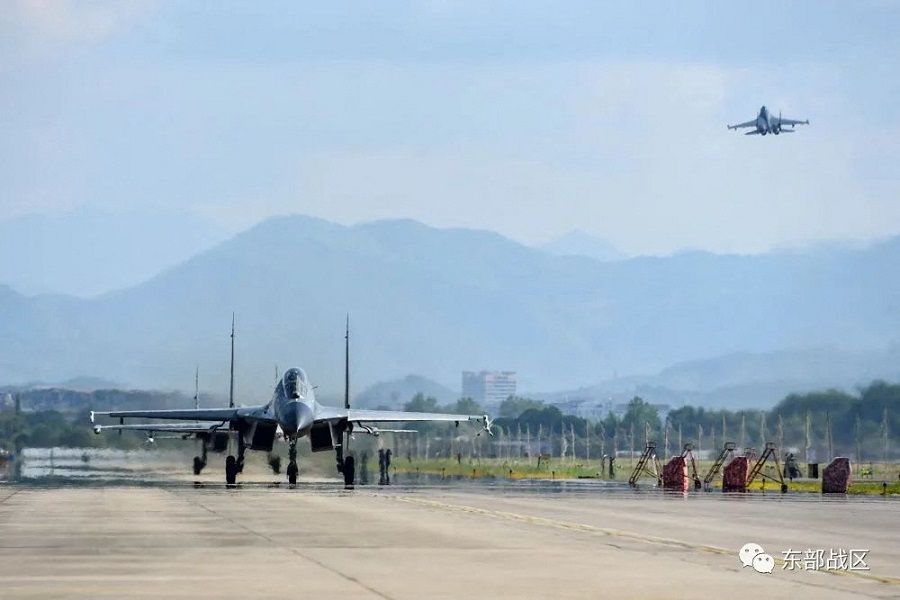
Given the overwhelming superiority of China's cross-strait military strength, playing the Taiwan card will just become more and more ineffective, and the players themselves will get less and less kick out of it. At its closest, Taiwan is a mere 120 kilometres away from the mainland. Foreign powers are helpless from a distance. All they're doing is stirring up a bit of trouble. Once China's military might come to be generally recognised as absolutely unshakeable, there will be no need to pay any attention to such provocations.
The mainland ought to have confidence in coming to a common understanding with Taiwan - i.e., that as long as Taiwan does not declare or pursue de jure independence, the mainland will not pursue reunification by force, but will seek instead to work towards a natural conjoining via positive interactions. As long as military deterrence is maintained without a chink in the armour, giving not even the slightest leeway, China can sit firmly on the Diaoyutai Islands and simply watch the storm blow by (稳坐钓鱼台), without any need to get jumpy at every intended trigger.
The biggest problem: the lack of general approval
The more likely scenario is this: even when mainland China has 100% confidence in taking over Taiwan through military means, it nevertheless chooses not to send in the guns, either because it is preoccupied with more pressing matters domestically and internationally, or because it does not know what to do next in the event of successful occupation.
Acting blindly would only make matters worse, turning the hearts of the Taiwanese people further away from the Chinese regime. The current lack of support on the other side of the Taiwan Strait is mostly due to abstract reasons. However, should a bad course of action be taken by mainland China, it would give rise to compelling, concrete reasons closely tied to personal lives.
... China's biggest problem, whether with regard to Taiwan or to the world at large, is the same: the failure to gain general approval.
Although independence for Taiwan has no legitimacy internationally, it is nevertheless agreeable to the heart and mind to have Taiwan retain its own social system and way of life, which would win the sympathy of the whole world. After all, what is the CCP's proposal on "one country, two systems" if not an affirmation of this belief?
Nevertheless, China's biggest problem, whether with regard to Taiwan or to the world at large, is the same: the failure to gain general approval. This is the greatest challenge in the path of China's rising, as well as the weakest link in the perception of the people in China to date.
To a great extent, the reason this country fails to gain approval despite its remarkable achievements is its ties with the Soviet Union model and is thus seen as a threat. Misunderstandings and misjudgements aside, there is some actual justification for this. The CCP should redesign and re-promote socialism around humanity and not dogmas, metamorphose out of the old socialism, and develop the attraction of its own systems on a whole new foundation.
Once China exudes such rallying power, independence for Taiwan would simply fade into nothing more than a pseudo proposition.
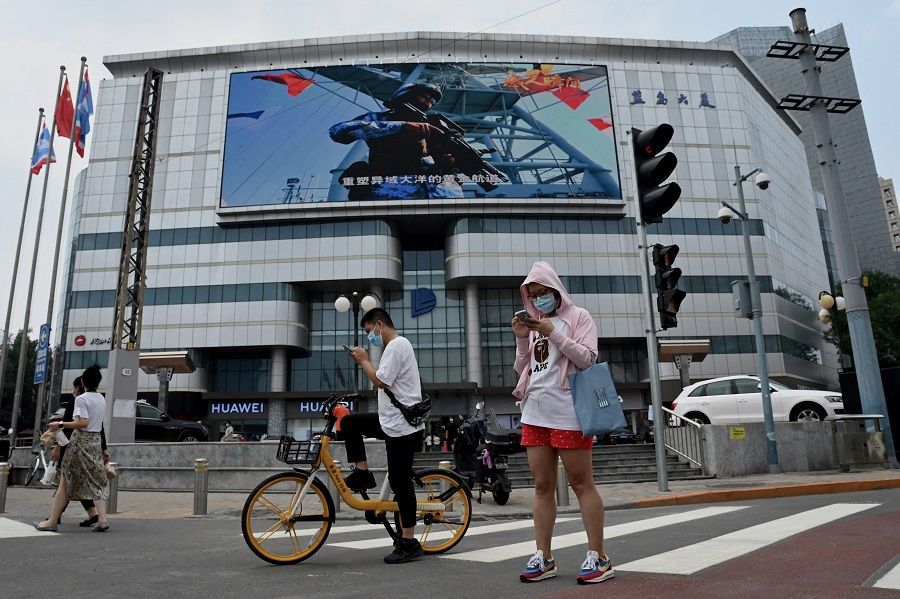
As Xi Jinping once put it: "CCP members and the Chinese people are fully confident of providing a Chinese solution to mankind's exploration of better social systems." This means that he sees the Chinese nation's rejuvenation as intertwined with the destiny of the whole world.
The CCP understands that the forces that drive the progress of human society and civilisation can only exist in the context of world history. It follows, then, that China truly needs to solve the problem of winning approval, especially some level of approval from the Western countries that are crucial for China's future.
One indicator of the rejuvenation of the Chinese nation should be the China-driven rise of the East Asian region, or even a similarly driven accelerated development of the entire third world. Once China exudes such rallying power, independence for Taiwan would simply fade into nothing more than a pseudo proposition. Therefore, the mainland should pay more attention to improving itself further, to make its systems and way of life more humanised, so that it may win the approval, acceptance and envy of the majority of the world's population.
In summary, cross-strait reunification is not a precondition and sine qua non for national rejuvenation. To forcibly push ahead with unification by military means would bring about enormous uncertainty, and may even lead to the premature termination of the rise of China.
In seeking to have things fall into place naturally and smoothly, it is better to wait for even as long as 100 years than to smash and break. Setting a timetable for reunification will only put mainland China into a position of passivity.
Related: Who will have the last laugh after Pelosi's Taiwan visit? | The Taiwan Strait crisis has strengthened Xi Jinping's position | Pelosi's Taiwan visit reveals the ugliness of Chinese nationalism | Is there still hope for peaceful reunification in the Taiwan Strait? | Are the Chinese people the true masters of their country?
